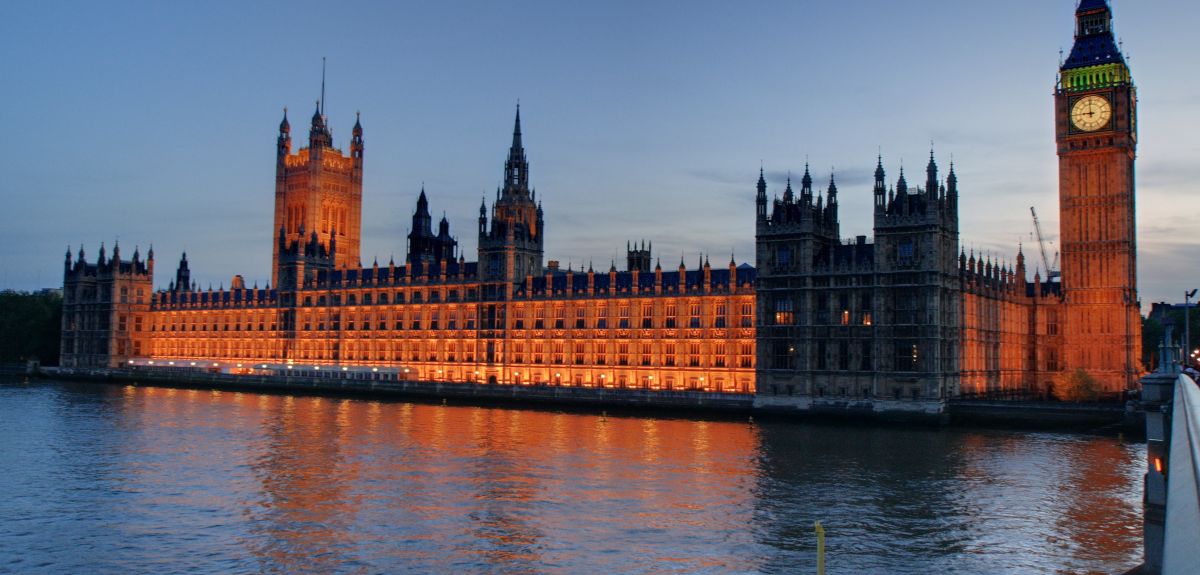
Davide Simonetti (Flickr)
'The five worst parliaments of all time'
As the final votes are counted and the UK's latest parliament begins to take shape, Oxford University historian Dr Jonathan Healey looks back at 750 years of parliamentary history to pick out what he calls 'the five worst parliaments of all time'.
This is a guest post for Arts Blog. You can see more of Dr Healey's blogs on The Social Historian.
The Bad Parliament, 1377
Doing just what it says on the tin, the Bad Parliament will go down as one of the few assemblies in history that was actually pro corruption.
Disturbed by the damage done by the sanctimonious ‘Good Parliament’ to the garden duck-house industry, the ‘Bad’ decided it befitted the Palace of Westminster to reward courtiers for all kinds of peculatory pilferings. Then, realising there were at least three small buboes in England that they hadn’t yet pissed off, they pulled one of those classic anger-harvesting manoeuvres out of the bag, and imposed a poll tax.
Peasants revolted, nobles were chased out of their mansions quicker than you can say ‘Ed Miliband’, and Richard II had his first serious go at throwing away his crown.
The Merciless Parliament, 1388
Things got even worse with the Merciless Parliament of 1388.
Ruled with sinister glee by the so-called Lords Appellant, the Merciless Parliament was created (one suspects) by forcing a nest of wasps to mate with Katie Hopkins, and cramming their multiple spawn together into a poorly ventilated Wetherspoons toilet.
It made life for its enemies about as much fun as being Eric Pickles’ ham sandwich. Anyone who dared support King Richard II against the Malevolent Appellants found Parliament quickly getting medieval on their ass. Its brutal punishments included hanging, drawing, quartering, beheading, and exile to Ireland.
Fortunately, the people of Kent suddenly noticed they hadn’t rebelled for at least seven years, and went on a well-timed rampage. This forced parliament to concentrate on raising troops rather than lowering life-expectancies, and everyone breathed a sigh of relief. Until…
The Parliament of Bats, 1426
Called to sit in Leicester because it was obviously much more civilised than London, the ‘Parliament of Bats’ came at a time when the nobility’s antics were starting to make Game of Thrones look like an episode of Peppa Pig.
Fearing violence (and improper parliamentary language), the government made the not-unreasonable suggestion that MPs should leave their swords and bows-and-arrows at home rather than bringing them to debates. To the Furcoat Mafia, though, this was just another case of health-and-safety gone mad, so they fired a jet of meady piss in the face of the new rules: arming themselves with a terrifying array of clubs and bats, and turning up anyway.
Worryingly, this fractious Parliament was presided over by a four-year-old (as opposed to someone just acting like one), so it’s nothing short of miraculous that more people didn’t end up under car parks.
The Rump Parliament, 1648-53
Created after a purge , the Rump Parliament is named for its size, though the name’s also an accurate description of what it sat on for four years.
Having, in fairness, significantly reduced the amount of extant Charles I in 1649, the Rump then proceeded to do nothing. Repeatedly.
So addled was the Rump that its MPs spent around eight of their four years arguing about the meaning of the word ‘encumbrance’. No-one pointed out that they could’ve solved the debate by getting a mirror and just looking at themselves. Its only successes came when it started a war with the Dutch out of sheer boredom, and in its brave attempt at bringing the gospel to Wales (though sadly this didn’t have anything to do with gospel music).
Fortunately, Oliver Cromwell was on hand to liven things up. On 20 April 1653, he burst into the house, called a couple of MPs whoremongers, and took away all their baubles. He then brought in a new parliament comprised of religious lunatics and lawyers, though for some reason this didn’t work very well either.
The First Protectorate Parliament. 1654-55
The First Protectorate Parliament followed on from this, and should’ve been brilliant.
Its MPs were only supposed to be those of ‘known integrity’ and of ‘good conversation’. But sadly their rule didn’t live up to their repartee, and they quickly knuckled down to some quality whingeing.
Even after Cromwell barged in (again), and threw a weapons-grade wobbly, they continued in their heroic efforts to be about as useful as a barbed-wire codpiece.
Such was their refusal to do anything vaguely like work that the Lord Protector decided to dissolve them after five lunar months rather than the five calendar ones in the constitution (a UKIP history curriculum would no doubt claim this as a case of his ‘giving in to Islam’).
It meant that Cromwell had now purged Parliament once (arguably twice), and dissolved it prematurely twice (arguably three times).
Naturally his statue now stands outside the modern-day House of Commons.